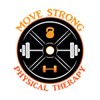Why You Are Not Making Progress in the Gym
“I’ve tried everything and I can’t get stronger/leaner/feel better, etc.”
This is one of the most common things we hear when athletes and clients come to see us inside of Cressey Sports Performance in Hudson, MA.
The athlete or client is frustrated because they are trying to train for their respective sport, job, or are just trying to move and feel better. Eventually, everyone hits a plateau. It is going to happen.
Here are some tips to help improve your progress in the gym.
1. Vary Your Weight/Reps/Sets

It is very common to see clients use the same amount of weight, for the same amount of reps and sets for years and use the same routine for years. This is one of the biggest reasons why people don’t see progress when they are training. The body needs a stimulus to see progress and continue to grow and that can mean:
Increasing the weight (as long as your technique doesn’t suffer),
Increase your reps/sets
Decrease your reps/sets
Increasing Time Under Tension (moving slower on the lowering portion of the lift)
Decreasing/Increasing Rest Breaks
These are some very common ways to make movements more challenging as well as can be a stimulus to bust through a plateau and see more progress.
2. Sleep

This is one of the most underrated forms of recovery on the planet. People are not getting enough sleep. Per the research, adults should be getting between 7 to 9 hours of sleep per night. If you aren’t, your body isn’t receiving the necessary rest needed for daily life, never mind the gym.
If you are waking up tired, most likely you didn’t get enough sleep. Not only does lack of sleep effect progress in the gym, it can have a long standing effect on cardiovascular and neurologic health.
We recently listened to THIS episode on the Joe Rogan Podcast with Dr. Matthew Walker and it was amazing.
There is another study that showed 1 week of poor sleep (less than 7 hours per night) decreased natural testosterone in males by 10-15%!
In the episode with Dr. Matthew Walker, he stated that “lack of sleep will age you by a decade.” Make sure to give the episode a listen. It’s long, but well worth the time.
The moral of the story, get more sleep and that may have a positive effect on your training in the gym.
3. Drink More Water

photo credit: everydayhealth.com
Like sleep, most people are dehydrated. Per USGS, “the brain and heart are composed of 73% water, and the lungs are about 83% water. The skin contains 64% water, muscles and kidneys are 79%, and even the bones are watery: 31%.”
A lot of the body is made up of water. Just for daily life functions, we need to be hydrated. Well, what is enough water?
We have heard two schools of though on how much water is enough. Barring any health conditions that can be affected by drinking water, the two schools of thought are:
Take your Bodyweight, Divide it by 2 and that is how many ounces per day you should be drinking.
If you are urinating clear or relatively clear/slight yellow tinge, you are hydrated.
The 1st school of thought sounds good, but this is just for day to day activity. It doesn’t take into account if you are exercising or training. If you are exercising or training, you need more. This leaves a lot of gray area.
We subscribe to the 2nd school of thought regarding urine color and hydration. Anecdotally, we have also found that having a gallon jug that you pour into a smaller water bottle is an easier way to stay hydrated vs trying to find a sink/water fountain, etc. throughout the day.
By having a gallon jug with you, at your desk and with you throughout the day, it is much easier to stay hydrated as you can fill up your smaller water bottle whenever you need to.
4. Nutrition
Last, but definitely not least, nutrition is key for progress in the gym. If you are eating processed carbs, sugary treats, etc., this is definitely going to impede any progress. We are by no means nutritionists and indulging in a treat here and there is not going to impede your progress, but if you are consistently eating foods along those lines, it is going to negatively impact progress with exercise.
So what do I eat?
A diet that consists of health proteins (well-sourced chicken, steak, fish), good carbohydrates (potatoes, sweet potatoes, rice, quinoa, etc.), and plenty of fruits and vegetables.
If anything, most people don’t ingest enough fruits and vegetables throughout their day. One infographic that works well for quantities of those types of food is through Precision Nutrition.

photo credit: Precision Nutrition
This infographic above provides a guide on what to eat at each meal and roughly how much. Make sure to check out their website for more details about specific portion sizes, etc.
If you are having difficulty making progress in the gym, try:
Varying your Reps, Sets, and Weight
Get More Sleep
Drink More Water
Dial in Your Nutrition
If you are dealing with any type of nagging injuries, we are here to help. Take that first step and connect with us HERE.



